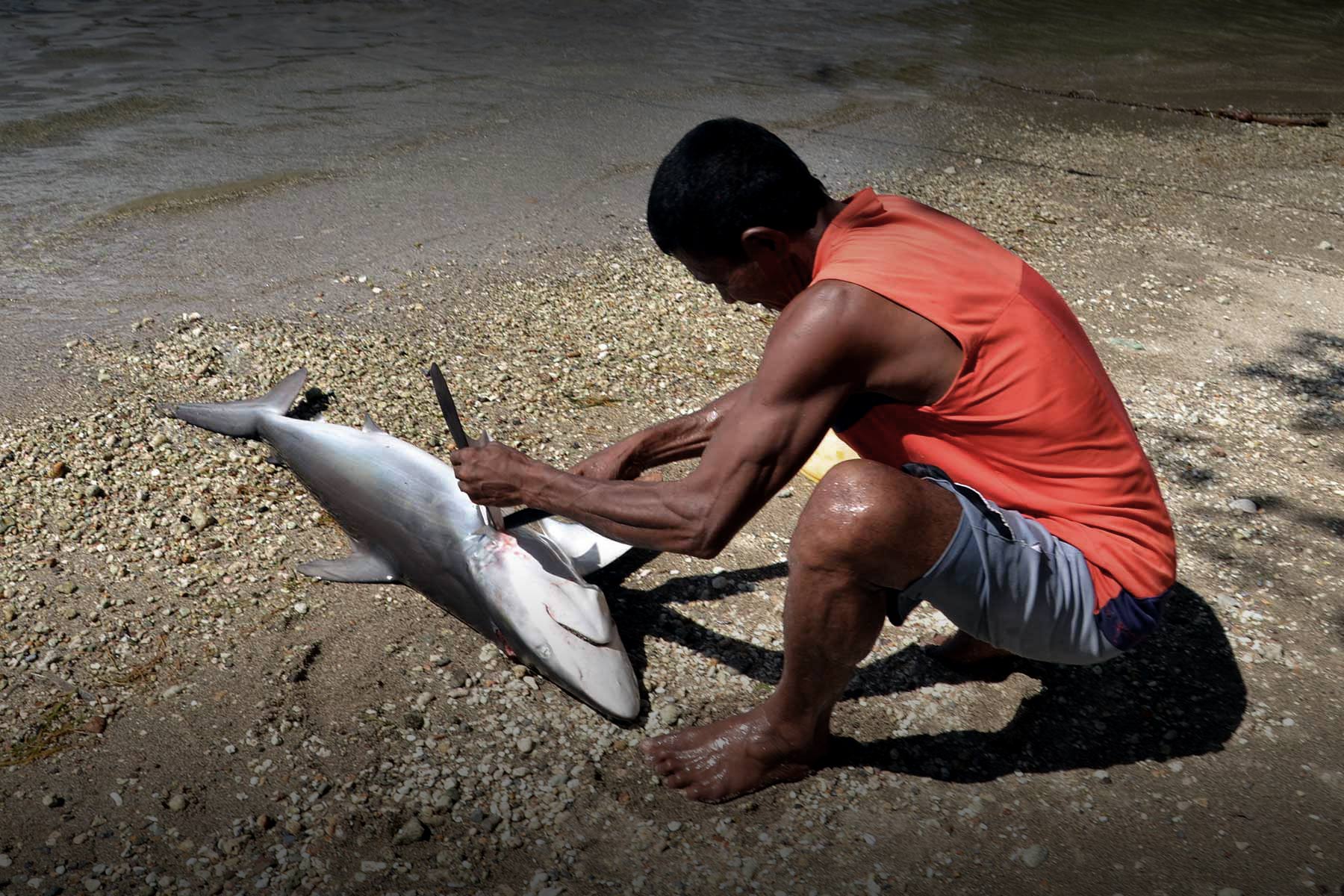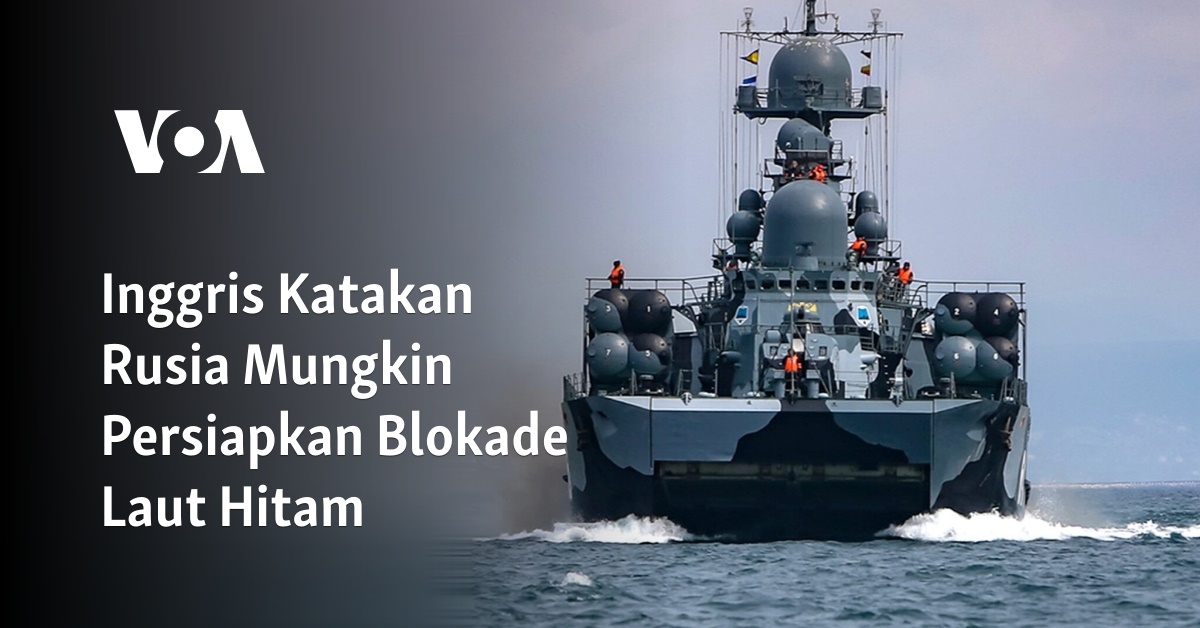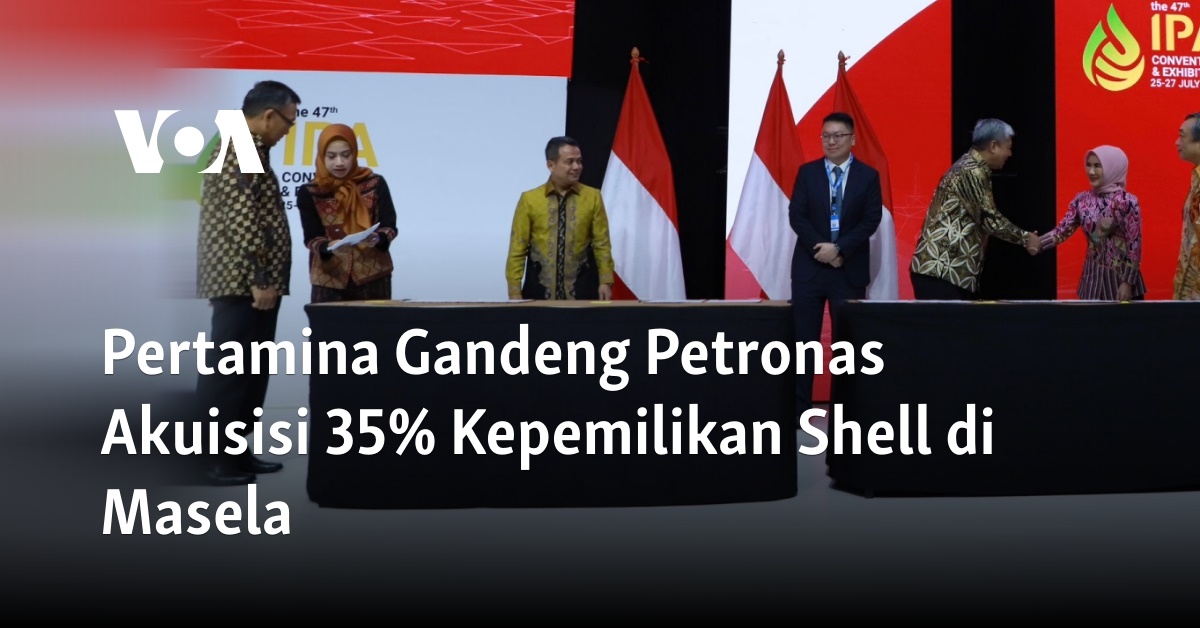
In early June 2022, Senja had just passed when Petrus Lesawengen (62) welcomed Zonautara.com to his home on Batuwingkung Island, South Tabukan District, Sangihe Islands Regency, North Sulawesi Province. The island is known as “shark island” because most of the fishermen there rely on catching the sea predators for their livelihoods. At his age, Petrus still goes out to sea, far from Batuwingkung, in pursuit of sharks. This is a traditional occupation that his two sons, Yohanis (32) and Timotius (26), have followed.
“We’re doing well now. The boat is bigger and has an engine. Our fishing gear also uses the long-line method. We once caught 28 sharks in one trip,” Petrus said, while tidying up his fishing equipment.
With the money earned from catching sharks, Petrus was able to finance Timotius’s education until he graduated with a degree in computer and communication engineering from Nusa Utara Polytechnic in Sangihe. However, despite his hopes of becoming a civil servant, Timotius has never passed the Civil Service Examination (CPNS).
“Right now, I go out to sea with my father,” Timotius added.
During the conversation that night, Timotius invited Zonautara.com to the kitchen, where hundreds of dried shark fins hung, the result of their hunting expeditions over several months.
“The most commonly caught type is the silky shark, which we call menehe,” Timotius explained, showing several bags filled with dried shark fins.
In addition to the silky shark, they also catch mouse sharks and hammerhead sharks. Most of the fishermen in Batuwingkung are familiar with the types of sharks they catch.
“Although it’s seasonal, we rely on catching sharks for our livelihoods here; it’s been a tradition passed down since our ancestors. I was able to go to school and graduate with a degree thanks to selling shark fins,” Timotius said.
However, there is no supervision of the landing of shark catches and other fish at Batuwingkung or Petta Port, North Tabukan District, one of the main points of fish trade on Sangihe Island. There are no offices set up by the Coastal and Marine Resources Management Agency (BPSPL) or the Fisheries and Marine Affairs Department. There is no registration of the number of sharks caught, the number of fins and meat sold, and fishermen such as Noldi and Aljufri can land sharks freely.
This is an activity commonly carried out by shark fishermen in Batuwingkung. There are 134 households on the island, and 98% of them are fishermen, with more than half of them fishing for sharks. The same applies to Petta, where some fishermen unload nine sharks from their boat in the absence of any supervision.
Tejo from Rekam Nusantara Foundation stated that the government should provide a landing area such as a fishing port. Several species of protected sharks are observed to be caught by fishermen in Batuwingkung and those who unload their catch in Petta. The regulation of shark trade with CITES mechanisms aims to ensure sustainability, compliance with rules and traceability of traded shark species. This regulation can prevent illegal trade and increase compliance with the CITES mechanism.


